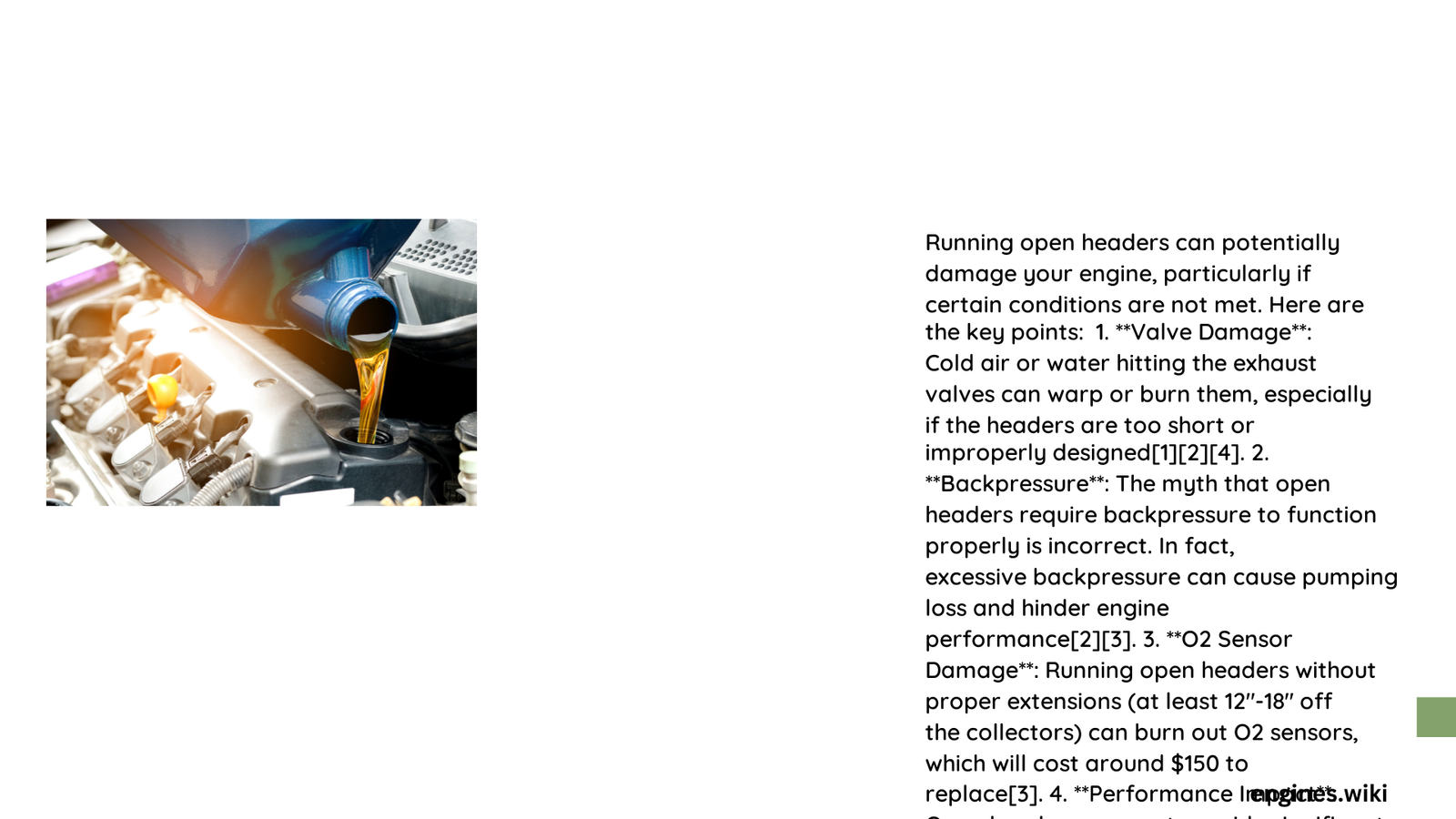Running open headers represents a significant risk to your vehicle’s engine performance and structural integrity. Removing exhaust systems creates a cascade of mechanical complications that can lead to expensive repairs, reduced engine efficiency, and potential catastrophic failure. Vehicle enthusiasts must understand the intricate mechanisms of exhaust backpressure and its critical role in maintaining optimal engine health.
What Happens When You Remove Exhaust Backpressure?
Open headers fundamentally disrupt the carefully engineered exhaust flow dynamics of an internal combustion engine. By eliminating the exhaust system, multiple critical mechanical processes are compromised:
How Do Open Headers Affect Engine Temperature?
- Excessive Heat Generation: Without proper exhaust routing, combustion temperatures spike dramatically
- Valve Seat Degradation: Extreme temperatures cause rapid wear on critical valve components
- Thermal Stress: Rapid temperature fluctuations create microscopic material fatigue
Can Open Headers Cause Immediate Performance Degradation?
| Performance Metric | Open Headers Impact | Potential Damage |
|---|---|---|
| Low-End Torque | Significant Reduction | Engine Strain |
| Fuel Efficiency | Decreased Efficiency | Increased Consumption |
| Combustion Quality | Compromised Mixture | Potential Misfires |
What Mechanical Components Are Most Vulnerable?
Prolonged operation with open headers creates substantial risks to:
- Exhaust Valves: Direct heat exposure causes warping and premature wear
- Valve Seats: Thermal stress leads to material deformation
- Oxygen Sensors: Inaccurate readings due to disrupted exhaust flow
- Combustion Chamber: Altered air-fuel mixture dynamics
Why Do Mechanics Strongly Discourage Open Headers?
Professional automotive technicians universally caution against open headers due to:
- Accelerated engine component degradation
- Potential voiding of manufacturer warranties
- Significant performance efficiency losses
- Increased risk of catastrophic engine failure
How Can Enthusiasts Safely Modify Exhaust Systems?
Recommended alternatives include:
- Electric cutout systems
- Properly tuned performance exhaust
- Professional engine management recalibration
- Header extensions to maintain minimal backpressure
Technical Mitigation Strategies

Automotive engineers recommend several strategies to minimize potential damage:
- Install 18-inch collector extensions
- Use precision-engineered exhaust components
- Implement advanced engine tuning
- Monitor real-time engine performance metrics
Conclusion: Balancing Performance and Preservation
While the allure of open headers might seem appealing to performance enthusiasts, the potential mechanical risks far outweigh momentary gains. Careful, professional modifications remain the safest approach to enhancing vehicle performance.
